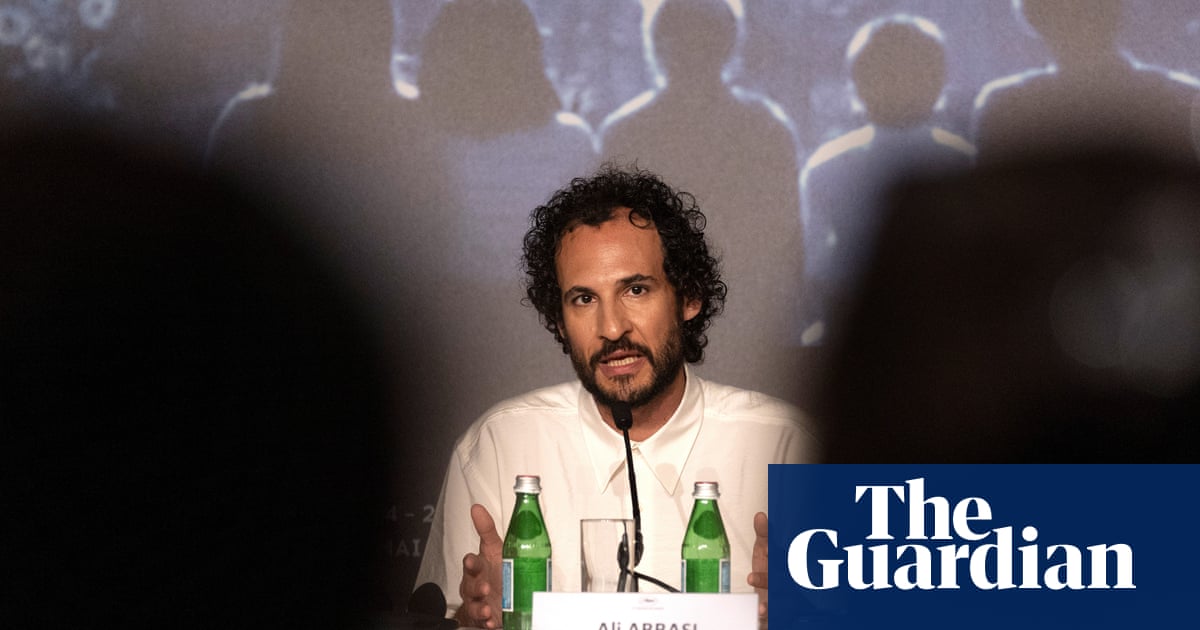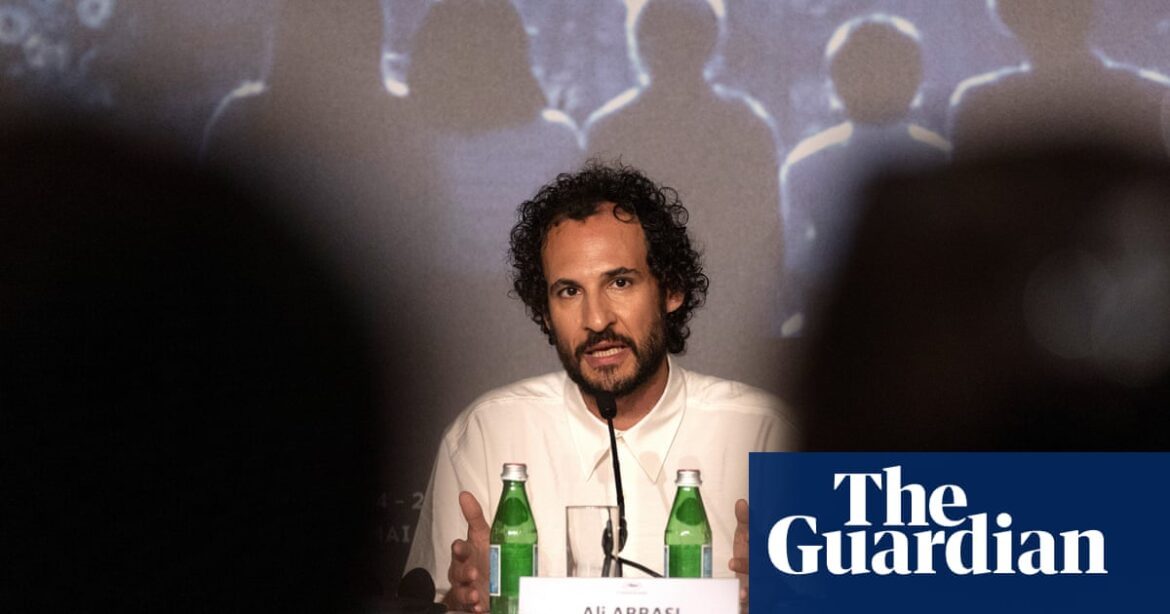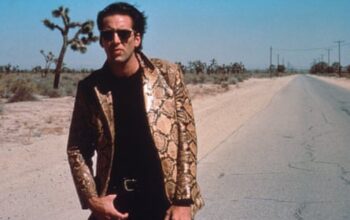
The protagonist of The Apprentice is a bully and a liar, a conman and a rapist. He rejects his sick brother, sexually assaults his doting wife and cuts a deal with the mafia in order to build a skyscraper. It’s safe to assume that followers of Donald Trump won’t relish the portrayal of their hero in Ali Abbasi’s new film. As for Trump himself, though, the director suspects that he might quite enjoy it.
“I don’t think it is a movie he would dislike,” said Abbasi after The Apprentice premiered at the Cannes film festival. “I don’t necessarily think he would like it, but I think he’d be surprised. So I’m happy to meet him, have a screening and then we can discuss it afterwards.”
Styled in the manner of an 80s TV movie, full of nightclubs and limousines, The Apprentice unfolds as a classic Faustian tale. The film charts the relationship between the young Trump and notorious New York attorney Roy Cohn, who served as Senator Joseph McCarthy’s chief counsel during the 1950s “red scare”, and prompted President Eisenhower to ban homosexuals from being employed by the federal government. Taking an instant shine to the fledgling real-estate mogul, Cohn helps Trump secure a tax break that allows him to renovate Manhattan’s derelict Commodore hotel. He also provides the three lessons that will guide Trump to the summit. Attack at all times, deny everything and never, ever admit defeat.
Along the way, Cohn advises Trump on how best to present himself on camera. “You’ve got kind of a big ass,” he scolds his protege at one point. “You’ve got to work on that.”
Named after Trump’s 21st-century TV show, The Apprentice stars Sebastian Stan in the title role, while Succession’s Jeremy Strong plays Cohn, who died from Aids-related complications in 1986. Strong is currently acting on Broadway in New York, but sent a statement on the film to be read out in Cannes. “Abbasi has made a monster movie,” he said.
At the press conference, however, the director was keen to emphasise his subject’s human side. “Remember that these are human beings,” he said. “The most despicable monster – the most reprehensible person in history – also liked a dog or fell in love with someone or was nice to somebody at some point. So if there’s an ideology to the film it’s a humanistic ideology.”
Opening in the Watergate era and proceeding through the 1980s Reagan years, The Apprentice charts Trump’s remorseless rise to power. But the film itself has a hill to climb. The Canadian-Danish-Irish co-production has yet to secure a US distribution deal, while the first reviews have been mixed. After the Cannes premiere, the Guardian’s Peter Bradshaw dismissed it as “obtuse and irrelevant … [a] breezy pastiche montage of amoral nastiness and conceit.”
Abbasi, for his part, remains optimistic about the chances of an eventual US release. “We have a promotional event called the US elections that we are hoping is going to help our movie,” he joked. “If I’m right, the second debate is going to be in October. So that would be a good release date for us.”
Adding to its headaches, The Apprentice now faces a threatened legal challenge from the Trump campaign, which is infuriated by the inclusion of a scene in which Trump is shown raping his first wife Ivana inside their apartment at Trump Tower. The offending scene offers a fictionalised version of an account by Ivana in 1990, which she later retracted.
“This garbage is pure fiction which sensationalises lies that have been long debunked,” Trump’s chief campaign spokesman Steven Cheung said in a statement to Variety on Monday. He added: “This ‘film’ is pure malicious defamation, should not see the light of day, and doesn’t even deserve a place in the straight-to-DVD section of a bargain bin at a soon-to-be-closed discount movie store. It belongs in a dumpster fire.”
Speaking to the press, Abbasi appeared unconcerned by the threat of legal action. “Donald’s team should watch the movie before they start suing us,” he said.
Legal bluster, the director suggested, was all part of Trump’s playbook. “Everyone’s always talking about him suing a lot of people,” he said. “They don’t talk about his success rate, though.”
Source: theguardian.com



